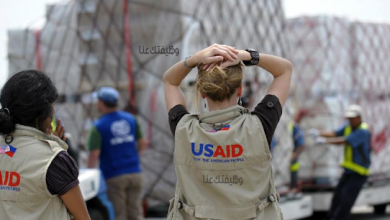Maternal Nutrition/BEP Tool Development Consultant

WFP celebrates and embraces diversity. It is committed to the principle of equal employment opportunity for all its employees and encourages qualified candidates to apply irrespective of race, color, national origin, ethnic or social background, genetic information, gender, gender identity and/or expression, sexual orientation, religion or belief, HIV status, physical or mental disability.
Job Title: Maternal Nutrition/BEP Tool Development Consultant
Type of Contract: Consultant / When-Actually-Employed (WAE)
Division: Nutrition division (NUT)
Duty Station (City, Country): Rome, Italy; remote work can be considered
Duration: 11 months
BACKGROUND AND PURPOSE OF THE ASSIGNMENT:
Maternal and child malnutrition remains a major Public Health concern in many countries where the World Food Programme (WFP) operates. The current global food crisis is further exacerbating the nutritional needs of the most vulnerable people in low-and-middle-income countries (LMICs). Women are particularly vulnerable to undernutrition due to their increased nutrient requirements for pregnancy, childbirth, and breastfeeding. Pregnant women require a diet with appropriate energy, protein, vitamins, and minerals to meet their own needs for health and wellbeing as well as for the growth and development of the foetus. Requirements are even higher during the first six months of breastfeeding. Poor nutrition during pregnancy and breastfeeding is known to have adverse short and long-term effects on the mother and the child, including increased risk of mortality, poor growth and development of the infant and longer-term health consequences. This generational cycle of malnutrition has an enormous cost for the individuals, communities, and countries.
Evidence has shown that Balanced Energy-Protein (BEP) supplements (providing 250-500 kcal and <25% of total caloric content from protein and mostly fortified) in pregnancy have the potential to improve maternal nutritional status and foetal growth in undernourished populations. Studies have reported that supplementation of BEP diet in undernourished pregnant women facilitated gestational weight gain and improved foetal outcomes in terms of reducing the risk of stillbirth, low-birth-weight infants, and small-for-gestational-age babies[1]. Based on the current evidence, the World Health Organisation (WHO) has recommended BEPs during pregnancy to address maternal malnutrition and improve birth outcomes in undernourished populations.
Despite the emerging evidence, the magnitude of the problem and the long history of food supplementation for women at WFP, little has been done in terms of bringing programming for maternal malnutrition to scale in a sustainable way and addressing some of the broader barriers to improve maternal nutrition. There is limited guidance, tools, and resources available to design and implement programming for maternal and women’s nutrition. The limited guidance that exists focuses mainly on health systems approaches but fails to consider the food system, including food needs, social/cultural factors that contribute to poor nutrition in women, the food environment and the affordability of a nutritious and healthy diet. Several factors have held back progress to achieve good maternal nutrition, including limited understanding of links between demand and supply, supply chain inefficiencies, barriers related to dietary practices, barriers related to political prioritization and costs.
To support national governments and other key stakeholders to reach World Health Assembly (WHA) and Sustainable Development Goal (SDG) targets for maternal malnutrition, WFP is proposing to assess these different barriers in a systematic way and translate findings into sustainable, financially viable plans to bring BEP to scale. The aim of this consultancy is to gather learning from ongoing programmes, guide the development of different tools to improve programme design and implementation, including the application of the new tools in two countries to gather learning and undertake refinements as appropriate.
ACCOUNTABILITIES/RESPONSIBILITIES:
- Conduct a review of the learning from BEP supplementation in Pakistan to identify best and emerging good practices
-
- Undertake a review and analysis of WFP’s work with the Government of Pakistan including contextual analysis, type of activities, product development, targeting strategy, resource mobilization, and national policies and capabilities.
-
- Distill key learning against the five key areas (demand, production, delivery, policy and finance) and identify any potential missing areas for the BEP tool development
-
- Apply the Pakistan learning to the development of the BEP tools
- Support the development of tools for BEP programming
-
- Identify key internal and external expertise for each tool
-
- Support literature reviews to gather existing tools within nutrition but also related to other sectors as relevant
-
- Develop an implementation plan for tool development and production (content as well as format)
-
- Lead consultations across NUT, with regional nutrition colleagues and with other key divisions/units within WFP to facilitate inputs and uptake.
- Conduct a rapid assessment of 8 to 10 countries to determine readiness for deployment of the tools and the expansion of BEP programming
-
-
- Identify key criteria for the review and data sources for the required information
-
-
-
- Collect information from secondary sources or informant interviews
-
-
-
- Propose a list of initial countries based on the results of the assessment and discuss with RNAs, HQ colleagues and COs
-
- Develop an implementation plan for testing the new tool kit in two countries. The plan will include key activities, milestones, timeframes and roles/responsibilities across CO/RB/HQ and across teams.
- Collaborate across the Division on broader efforts to improve approaches on maternal nutrition, including targeting, evaluation, research and assessment of programme coverage.
DELIVERABLES QUALIFICATIONS AND EXPERIENCE REQUIRED:
- Report highlighting the key learning on BEP programming in Pakistan
- Implementation plan for tool development with clear milestones and roles/responsibilities outlined
- Assessment of 8-10 countries against key criteria to determine readiness for tool application and BEP scale-up with recommendations for several countries to test the tool
- Implementation plan for testing the new tool in two countries, including timeframe, milestones, and roles/responsibilities
QUALIFICATIONS AND EXPERIENCE REQUIRED:
Education:
Advanced University degree in International Development, Economics, Social Science, Nutrition or other field relevant to international development assistance.
Experience:
10 or more years of relevant international experience. The candidate should be able to demonstrate strong competence in the following areas:
- Has supported programme design in nutrition
- Has experience in maternal nutrition programming in a range of contexts/countries
- Has experience and/or knowledge in bringing programmes to scale, particularly related to national government-led service delivery and system strengthening
- Excellent analytical skills and ability to link data analysis to programme design in the context of WFP programmes.
- Excellent work planning and project management skills ideally demonstrated in a WFP or other international context.
- Has worked with government agencies and gained policy experience.
- Has worked with donors and gained budgeting/financing experience
- Has experience working in an international environment across a diverse range of geographical and functional areas.
Knowledge and Skills:
- Demonstrated knowledge of maternal nutrition in the context of humanitarian and development operations. Demonstrates the ability to engage key stakeholders (e.g. WFP units and external partners) in policy dialogue to strengthen national maternal nutrition programming
- Data collection and analytical writing skills, including ability to analyse and consolidate quantitative and qualitative information to understand prioritization processes across a wide range of policy and programme areas and identify gap and needs, as well as WFP’s entry points.
- Strong interpersonal skills demonstrated by the ability to gain the assistance and cooperation of others in a team endeavour through demonstrated technical leadership.
- Strong communication and conceptual skills.
Languages:
English (Second UN language is desirable)
Terms and Conditions
WFP offers a competitive compensation package which will be determined by the contract type and selected candidate’s qualifications and experience.
Please visit the following websites for detailed information on working with WFP.
http://www.wfp.org Click on: “Our work” and “Countries” to learn more about WFP’s operations.
Deadline for applications: 02 March 2022
Ref.: VA No. 481920
All employment decisions are made on the basis of organizational needs, job requirements, merit, and individual qualifications. WFP is committed to providing an inclusive work environment free of sexual exploitation and abuse, all forms of discrimination, any kind of harassment, sexual harassment, and abuse of authority. Therefore, all selected candidates will undergo rigorous reference and background checks.
No appointment under any kind of contract will be offered to members of the UN Advisory Committee on Administrative and Budgetary Questions (ACABQ), International Civil Service Commission (ICSC), FAO Finance Committee, WFP External Auditor, WFP Audit Committee, Joint Inspection Unit (JIU) and other similar bodies within the United Nations system with oversight responsibilities over WFP, both during their service and within three years of ceasing that service.
[1] Saville, N.M.; Shrestha, B.P.; Style, S.; Harris-Fry, H.; Beard, B.J.; Sen, A.; Jha, S.; Rai, A.; Paudel, V.; Sah, R. Impact on birth weight and child growth of Participatory Learning and Action women’s groups with and without transfers of food or cash during pregnancy: Findings of the low birth weight South Asia cluster-randomised controlled trial (LBWSAT) in Nepal. PLoS ONE 2018, 13, e0194064





